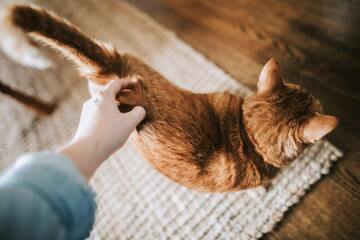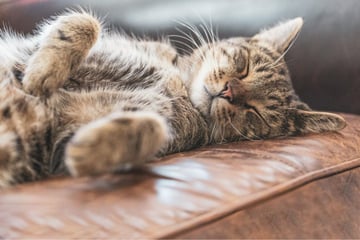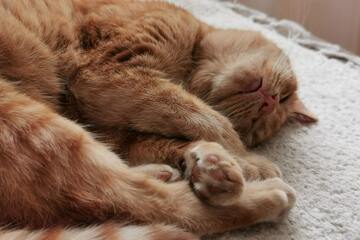How to keep cats from scratching furniture and walls
If your cuddly little cat has been up to no good, it's time to act. What on Earth is behind your cat's furniture and wall-scratching behavior? Let's take a look at what you can do to help.
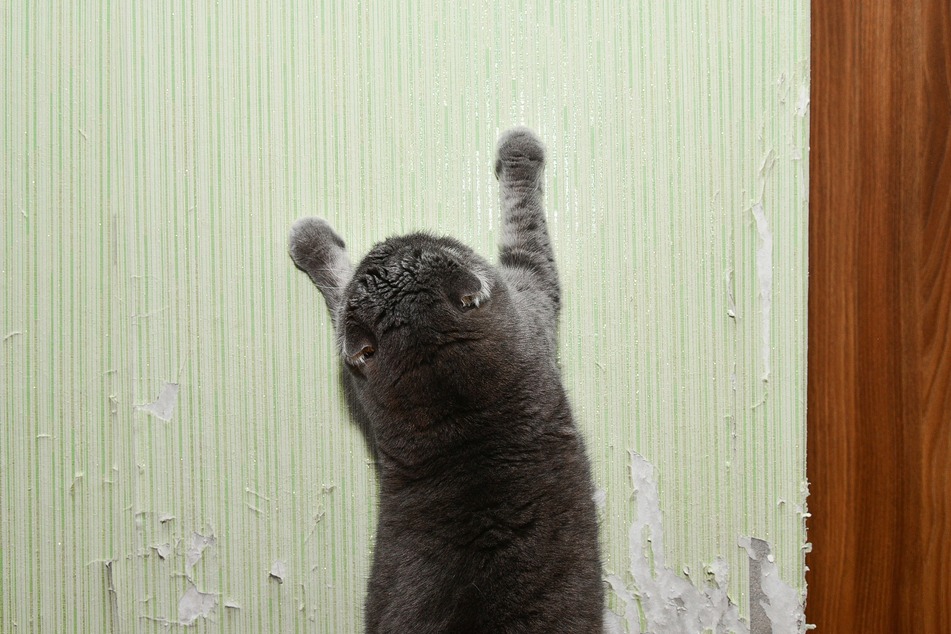
Cats like to use their little claws for all kinds of things. From climbing and fighting to picking things up and causing a nuisance, there is one thing they love doing more than anything else: ruining your beloved possessions. Why in the world do they do it, though?
In this cat guide, TAG24 takes a look at why cats scratch furniture, floors, and walls, and explores how to stop cats from scratching furniture.
Why do cats scratch furniture?
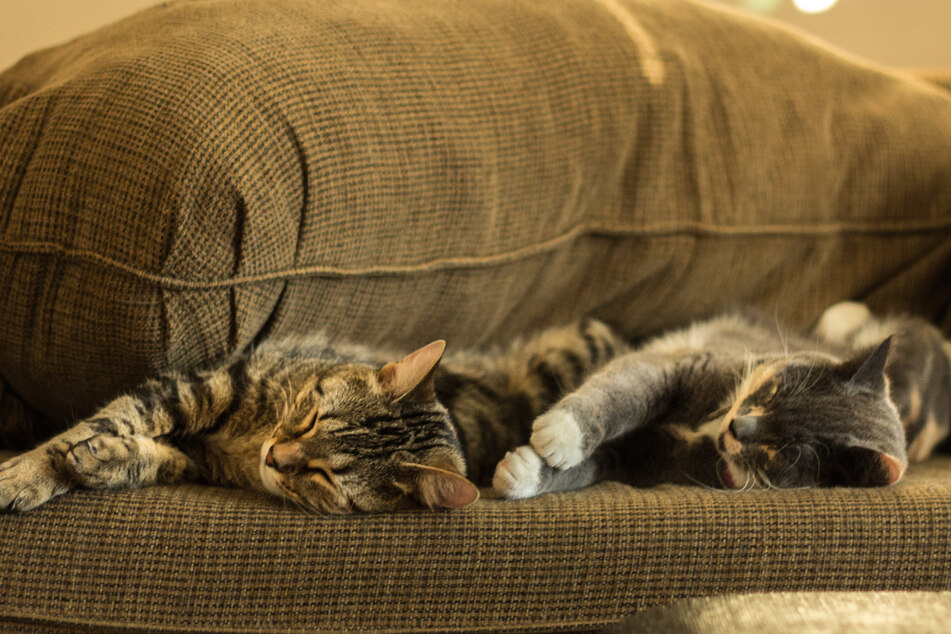
It's extremely important to understand the reasoning behind your cat's absurd behaviors. Why does it seem intent on shredding your lovely lounge chair? Well, there are a variety of explanations. Here are a few reasons why your cat's turnin' your stuff into scrap:
1. It's sharpening its claws!
The most common and well-understood reason for your cat's furniture-clawing habits is that it wants to sharpen and shape its nails. You see, as a cat, you don't actually have the option to get a professional pedicure. As a result, your only options are the bark of a tree or the lovely scratchy material of a human's fabulous futon.
These sharp claws are important for a cat, as they allow it to climb more effectively, defend itself against potential aggressors, and carefully lift unwanted food stuffs out of its bowl. Considering the importance of some well-crafted nails, can you blame them?
2. It's marking its territory!
Cats aren't only going to mark their territory with a quick whiz on your mom's favorite lemon tree. As it happens, they emit a small amount of sweat from their paws. Unlike in humans where sweat regulates temperature, cat sweat is a way of spreading pheromones and communicating to other cats, "This is my home, keep out!".
When they scratch a tree, your carpet, or some other household item, they are spreading this pheromone onto things that they think they possess.
3. It's relieving stress!
If your cat is stressed out, it's going to act out. That behavior might be aggression, poor potty habits, or the destruction of your property. Think about it this way: Breaking things can be a good way to relieve stress, can't it? Of course, and cats will often scratch things like wallpaper, furniture, and carpets when they are freaked out!
4. Sometimes cat claws grow excessively fast
If you don't own a nice nail clipper and you avoid nail scissors like the plague, then you're going to need to bite that loose nail off. It's the same for cats. They will claw things and bite their nails to reduce their size. This behavior is actually incredibly important for their health, so if they don't do it, then you're going to need to get to cat nail clippin'!
5. When your cat is bored, it will want to play
Ultimately, kitty-cats have the personality of a two-year-old child their whole life - judgmentally and temperamentally. In other words, if they get bored, you're going to know it. If you haven't paid enough attention to your cat, haven't let it outside, or have left it in the lurch somehow, destruction will ensue.
6. You haven't provided alternatives to scratch
If you haven't provided your cat with sufficient scratching posts, cat trees, blankets, real trees, and beds to scratch on, then they're going to find an alternative. Even if you have an outside cat, make sure to still have a few scratching opportunities inside, lest you want for a ripped-up comforter.
Fun fact: Did you know that cats actually have 18 claws? You'd think they'd have five on each foot, but you would be wrong! Indeed, they have five on their front paws, but they only have four on their hind hands. Strange, right?
Why do cats scratch the floor in particular?
The primary reasons for a cat's floor scratching is to sharpen its nails and mark its territory. Carpet is often not particularly effective at shortening and trimming the nails, and there are far more destructive things that it can do when bored or frustrated. In other words - floor scratching is one of the harder behaviors to prevent!
Why do cats scratch the wall and wallpaper in particular?
A cat's wall-scratching habit is more concerning, as it is an indication of a rather unhappy feline. These restless felines will continue to be destructive and iffy until you get to the bottom of their discomfort. In such a case where wall-based scratching is a common occurrence, it may be wise to give your vet a call.
In fact: If you have a particularly destructive kitty, it could be due to an illness or something similar. When you observe such behavior, getting the advice of a licensed and trained veterinarian is never a bad idea.

How to stop cats from scratching furniture, walls, and carpets
The first step to take when your cat has developed a nasty wall/furniture scratching habit is to determine what caused it. After that, it's all about finding a solution. While it can be rather hard to entirely eliminate, we're here with a couple of solutions you can try out.
Here's how to stop your cat from scratching your favorite furniture:
Stop cat scratching by offering alternative scratching options
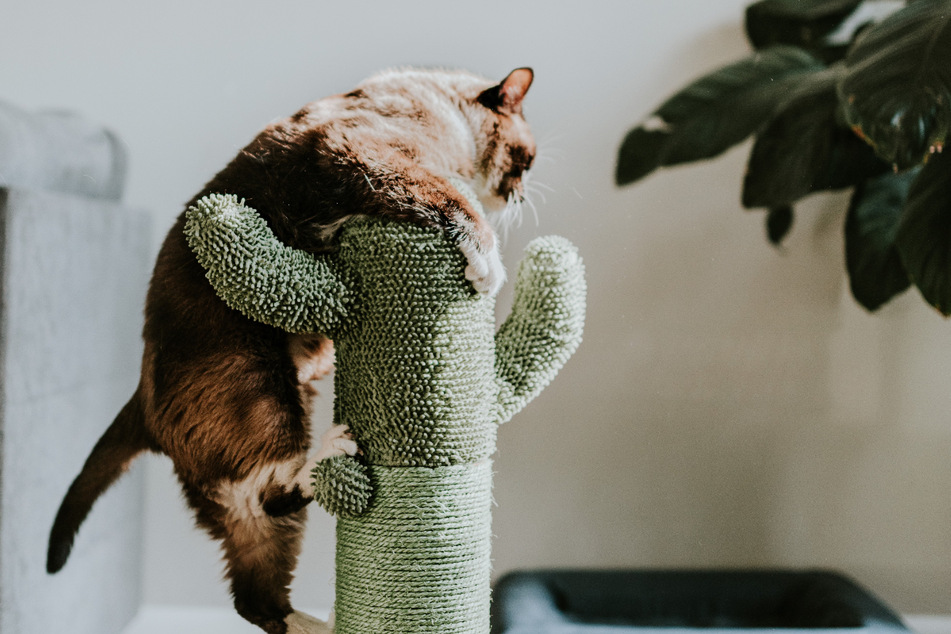
If you want your cats to keep its greasy mitts of your beloved wallpaper and your loosest loofah, you need to make sure to get it a scratching post, preferably multiple. This can be a large cat tree, or a smaller scratching post or mat. Your best bet is to have one big structure, and a number of smaller ones. After all, variety is the spice of life!
Improve a cat's scratching habits by giving it more attention
Every cat craves some form of attention. The level of socializing it needs, though, depends heavily on its personality, and it's up to you to figure out this balance. If it is clearly unhappy, try increasing the time you are spending with it, and if this makes things worse, reduce that amount of time you spend together. A little experimenting goes a long way!
Reduce your cat's stress to reduce its scratching
Have you been vacuuming a little too often recently, or has your cat been under a bit of pressure to over-perform at kitty school? Your cat can get stressed, as well. And when it does, it won't shut down – it will flip the heck out! You need your kitty to feel balanced and relaxed.
Cats are quiet animals and have a strong sense of hearing, so the first thing you need to do is cut out any loud noise or music. If there is construction nearby, then maybe move your cat to the quietest area of the house during periods of intense noise. If it is sick or something else is stressing your cat out, don't hesitate to take a trip to the vet!
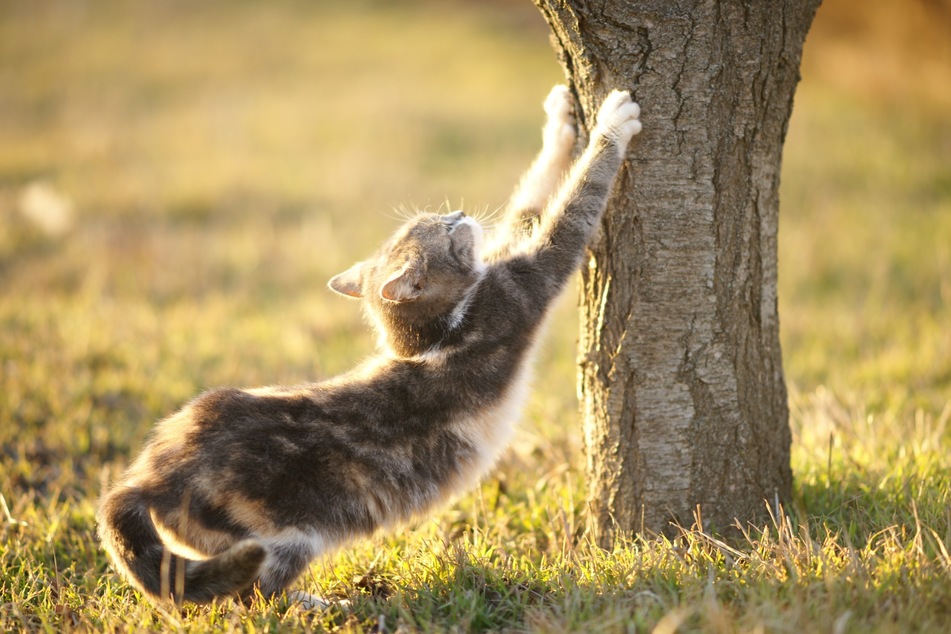
Avoid conflicts with other cats to avoid home-based destruction
If your cat is an outdoor kitty, then it could be having conflicts with other feline fellows in the neighborhood. Observe how your cat behaves when it is outside, and listen out for any cat fights. In the case that it becomes clear there is an issue, make sure that you keep it inside at nighttime.
Use anti-cat-scratching aids
If your cat is scratching your furniture in particular, then maybe you should take preventative steps against damage. Get some rugs and blankets that you don't mind being scratched, and lie them over the scratch-able areas when the item isn't in use.
Sure, it's not the most elegant solution, but it works. If you have an armchair that your cat's taken a liking to, cover it in a towel when you're not sitting in it, and make sure to discipline your kitty whenever it tries to scratch it.
One final note, on discipline: Be careful when you discipline your cat. You don't want to establish a relationship of fear, and positive reinforcement should always be your primary port of call. If you're unsure, you should check with your vet.
Train your cat to stop scratching!
A cat that scratches up your mom's favorite couch may not be trained properly. It needs discipline, and it needs to be trained from a young age.
Simply practice patience, give love, and provide your cat with alternative scratching things. If you don't want your favorite rug to be obliterated, then try one of these helpful tips above on for size!
Cover photo: 123RF / Yarofoto
